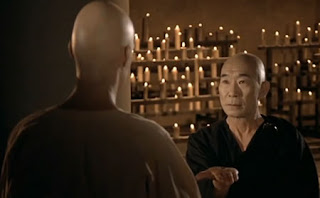The trickiest part of this process is, of course, identifying the parts of your games that need improvement. The simplest method of doing this is asking your players. After the end of a game I will often ask my players what they liked or disliked about the session so that I can make adjustments for next time. It's best to wait a while after the session ends before asking this, to give your players a chance to rest, converse, and reflect on the game. Don't press the issue, but listen to your players if they have some concerns about the way the game went. This is the opportunity to make your players feel comfortable about sharing their thoughts on things and to invite them to make those thoughts known.
Another way of spotting problem areas is to note any moments of obvious confusion or trouble that might crop up during the game. If there was a particular event in your game that caused it to slow down or stop, something that needed to be corrected or undone, that's something that you can aim to avoid in the future. Don't make a big deal about it at the time it happens, but once your game is finished you will want to figure out how to avoid the issue in the future.
Finally, you also want to look at the parts of your game that are already going well and figure out how to make them even better. Don't settle for adequacy when you have the opportunity to optimize your campaign. Use this opportunity to think as a writer, an engineer, or an inventor. Innovate and improve upon what's working, and remove whatever doesn't fit. Keep moving forward.
Some examples of what I'm talking about include:
- Placing a sticky note of a rule you keep forgetting in a prominent place at the table.
- Implementing a house rule to make initiative easier.
- Having a separate area for snacks so that they don't spill onto the game table.
- Seating a very hands-on player closer to the map so they can reach it.
- Collecting more minis or tokens for setting up battlefields.
- Describing the players' critical hits in more detail when they strike enemies.
- Resolving to spend less time flipping through the rulebook.
Happy ventures!



No comments:
Post a Comment